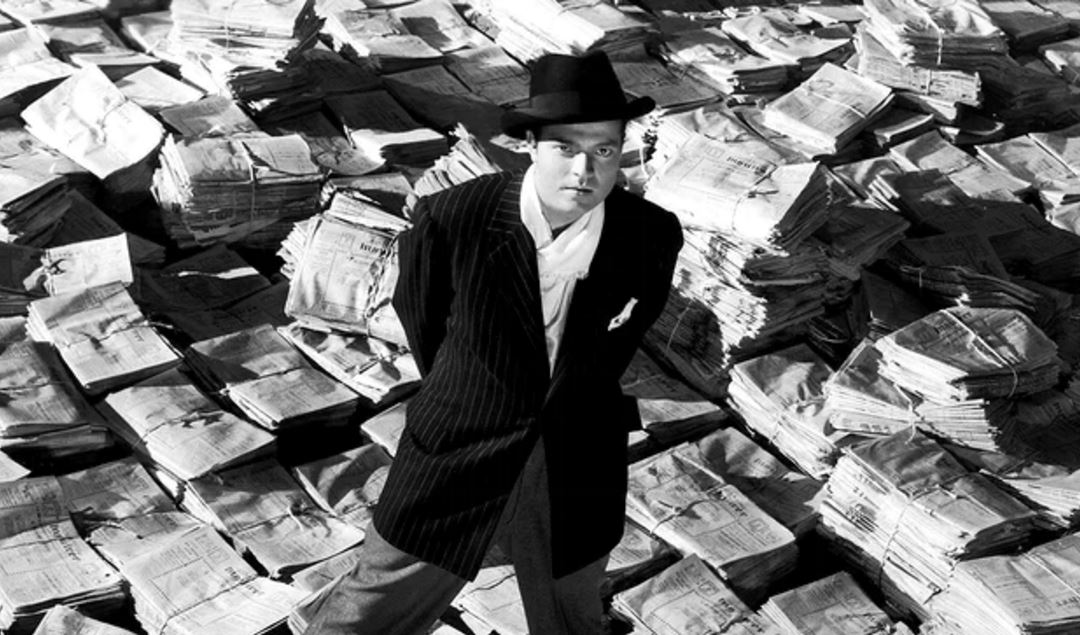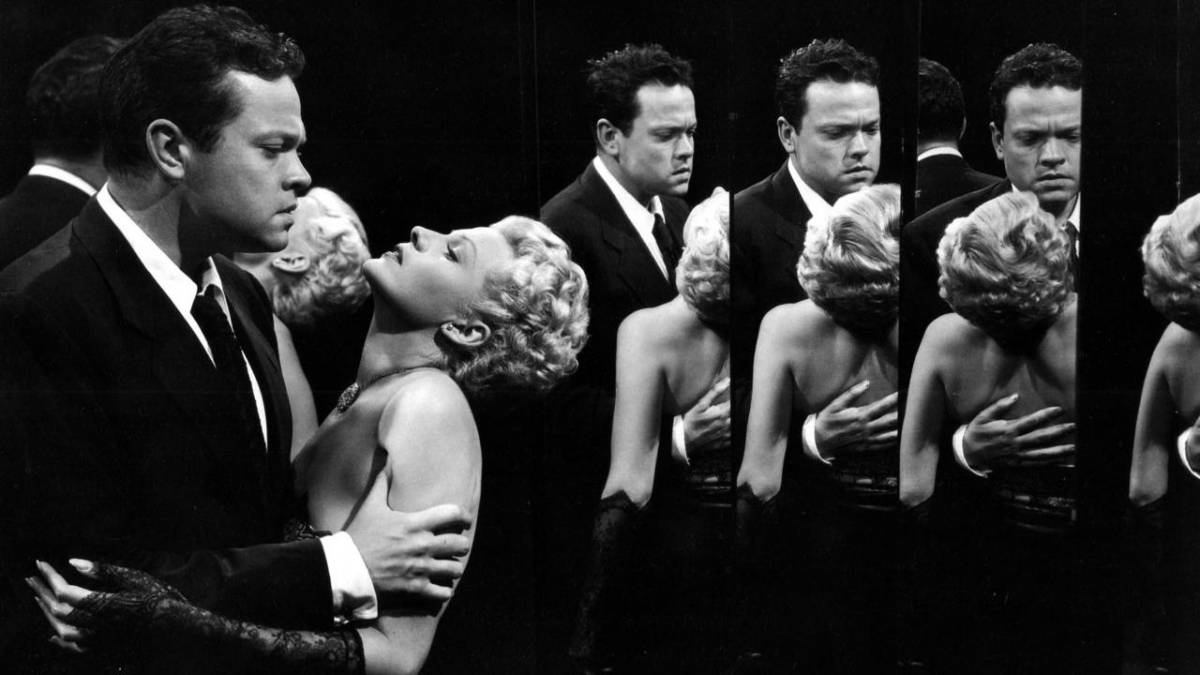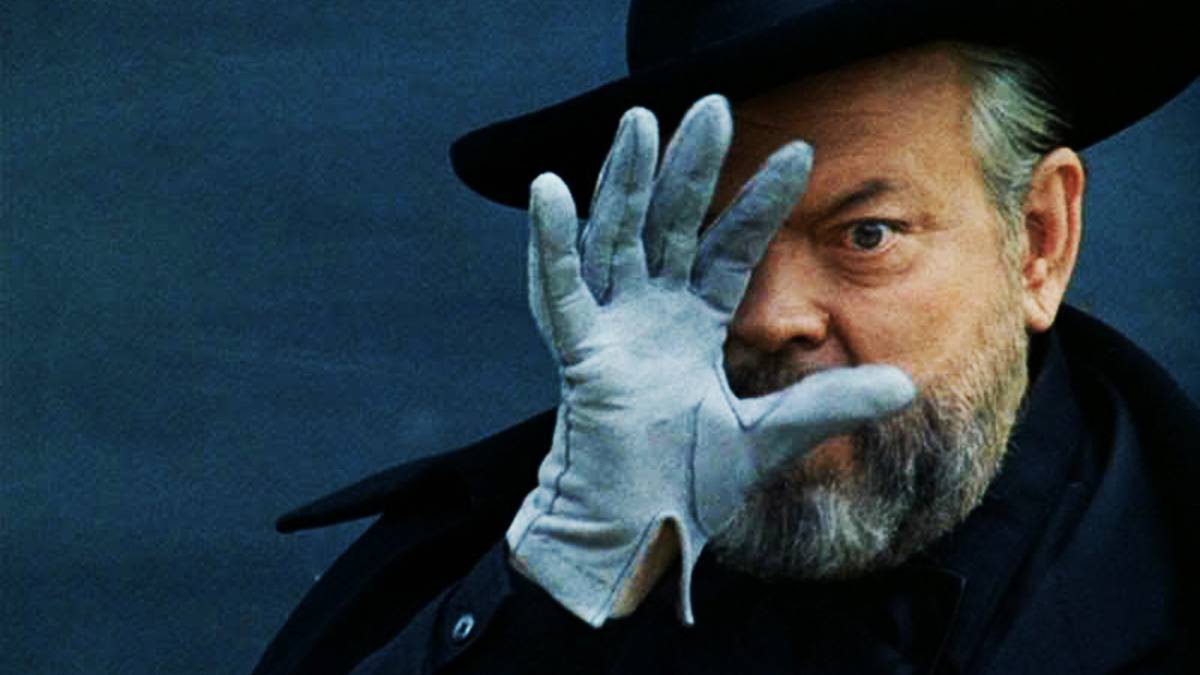The list is chronological, and not intended to be in order of which is best.
Only acting roles are considered. If the actor also directed the film, then that will be kept in mind.
I’ve realized that when it comes curating any list of the best Orson Welles movies, there is no criteria that works for me. At least, when we were talking about the maddeningly uneven, varied acting roles he chose during his forty-plus year career. He also assigned a lot of them to himself, when he managed to get everything to click long enough to work behind the camera. Sadly, as he got older, legitimate bad luck and idiotic decisions worked hand-in-hand to make it harder to get directing gigs.
His acting credits offer something more prolific. It might even be more interesting than his celebrated directorial career. There is a sharp contrast between his best and worst performances. For me, any list of the best Orson Welles films would be a mix of obvious classics and weird miscellany. However, if you only have but so many entries to fill, as we do here, you might lean on the classics. I did that here but keep in mind that Welles is a lot of fun in a lot of really bad movies. Check out Necromancy and The Man Who Saw Tomorrow. Fucking awful, the both of them, but Welles is still a kick.

The severe, frenzied need for money drove Welles to many of his film/TV roles. Welles would try to funnel those profits into personal projects. As was often the case, family commitments, a lavish lifestyle, and assorted creditors ate into Welles’ earnings. Terrible business decisions occasionally highlighted the struggles that dogged him from the days Citizen Kane ran afoul of its subject matter William Randolph Hearst, to the end of his life.
We’re not here to romanticize or obsess over Welles’ failures. It’s simply hard to mention one thing about him, without wanting, or feeling obligated to mention something else. He was complex. He was a magician. He was a self-professed fraud. More often than not, he was an enormously effective actor, even when he was simply phoning in his remarkable voice and near-mythical stature.
Once in a while, he was one of the best actors of his time and place.
1. Citizen Kane (1941)

Citizen Kane is one of those old movies that everyone tells you is a classic. Even people who have never seen the movie will tell you it’s a classic. Those thoughts are unavoidable, but they also aren’t terribly fair to the movie in question. Citizen Kane is a thrilling, clever, and entertaining movie, even seven decades after its stressful release. The mythology and controversies surrounding this movie are so vast, I’m not going to try and cover them all here.
Let’s focus on the heart of what I believe to be true with the writing-directing debut of Orson Welles, who was riding the momentum of The Mercury Theater’s War of the Worlds broadcast. On both the writing and directing fronts, Welles (along with Gregg Toland and Herman J. Mankiewicz) created a masterpiece. The pulse of that masterpiece continues to be loud, distinctive to this day. As the star of the movie, Welles is electrifying as Charles Foster Kane. It doesn’t really matter how much Welles based the character off of William Randolph Hearst. What matters is that Welles brilliantly creates a man who is charming enough to get to the top of the world, but bitter and stubborn enough to act as though he is helpless to stem the tide of misfortune. The performance is one of the most significant elements to this film continued, deserved stature.
2. The Lady from Shanghai (1947)

If the story is to be believed, Orson Welles essentially made The Lady from Shanghai as a payback to a loan from Columbia Pictures head Harry Cohn. Regardless, The Lady from Shanghai proves that Welles was capable of writing and directing varied masterpieces within the vast range of his imagination. Once again, he takes the lead. Once again, it is difficult to imagine anyone else in the role.
Although his Irish accent is occasionally distracting, Welles is perfect as a slightly hapless sailor who finds himself in the company of a beautiful, cunning blonde (then-wife Rita Hayworth, in one of her best performances of all time), and some assorted dangerous characters. This includes a husband. As Welles’ Irish sailor sinks deeper and deeper into dealings with these people, the movie maintains a gleeful, slightly drunken storyteller quality. His performance is at the heart of that. The Lady from Shanghai is one of the most inventive gems from the glory days of noir. It has a sense of humor that never veers into disrespect or mockery. Welles plays his character as an extension of those thoughts. Even as Michael O’Hara is left exhausted, deeply cynical, and devastated by the film’s manic, genius climax, you hear a smirk in his tone of voice. The movie is fun. Welles channels that with ease.
3. The Third Man (1949)

The Third Man is another one of those Orson Welles movies that have inspired books, term papers, and other lengthy materials. However, for everything this Carol Reed film accomplishes as a post-war commentary, and as an absolutely relentless, intense mystery film, Welles’ enigmatic Harry Lime is probably the most memorable thing. That’s not terribly fair to the many wonderful things that created this classic, but it’s hard to argue. Everything in the movie is focused on the search for a man named Harry Lime. Even as writer Holly Martins (Joseph Cotton) tries to survive his dealings with the sad, seedy world of Vienna’s post-WW2 black market, we know he really just wants to find this friend Harry Lime.
And he does find him. That’s where Welles comes into play. In one of the most unforgettable, sinister, and perversely charming speeches in film history, Harry tries to explain everything to Martins. Being the subject of a city-wide manhunt from numerous interested parties has clearly driven him a little mad. Yet as he explains his motivations for operating in the black party, and as he comments on history, the ants beneath him, and a cynical future, he exudes everything but fear. He is amused, captivated by his circumstances, and by the opportunity to impress and terrify his friend one more time. If you need any one reason to watch The Third Man, let it be this speech that Orson Welles delivers, close to the end. It is one of the best monologues in movie history, regardless of whether or not Welles wrote it.
4. Touch of Evil (1958)

Welles had an unhappy experience with the making of Touch of Evil. However, once again, we are dealing with a movie and relatively small aspect of Welles’ life that could serve as a plot to a lengthy novel. Nonetheless, and although the movie is unfortunately tainted by some pretty ridiculous whitewashing, Touch of Evil is still worth your time. The film is another noir effort from Welles, but you won’t mistake Touch of Evil for anything you would find in The Lady from Shanghai.
Touch of Evil is grimy, corrupt, and decrepit. The aura of lost souls, disguised as actual human beings, is almost suffocating. Forget about Charlton Heston’s wooden, drab performance as a U.S. drug enforcement officer in Mexico. Welles is the real joy, as one of the ugliest law enforcement figures ever created in a movie. Hank Quinlan is a bloated, hateful obstacle for Heston’s character. It is not the most complex character Welles ever played, but it might be his best example of villainy.
5. F for Fake (1974)

Okay, so by now, you’ve probably noticed that Welles wrote and directed almost all of these (he claimed for years to have written his dialog in The Third Man). That’s the list I’m going to commit to, but I do think it’s also unfair to all of the great performances Welles gave, in films he didn’t write or direct. Within that thought, if you need more beyond this top 5 Orson Welles movies list, consider The Long, Hot Summer, Moby Dick, Casino Royale, and Someone to Love.
However, if you want an essential five, the final entry has to go to F for Fake. It’s true that Welles is technically playing himself in this delightful, batshit crazy film essay on famous fakers, the art of the steal, and notable examples of successful fakery. I don’t think it really matters. As our presenter, narrator, and guide through Clifford Irving’s fake Howard Hughes biography, the true genius of Pablo Picasso, The War of the Worlds, and much more, Welles gives one of the best performances of his career.
As F for Fake moves in and out of genres, moods, tones, and narratives, Welles is there every step of the way. He is at the pinnacle of the kind of magician he always wanted to be. He is smooth, amused, manipulative, and gleefully dishonest. What seems like a madcap, meaningless assortment of people, techniques, and stories is actually one of the best blurrings of reality and fantasy that any filmmaker has ever pulled off. And even when it seems like Welles is just talking to hear the sound of his own voice, he is actually waiting for the end of the movie to strike and crush your chest. Obviously, he can’t be there to actually know your reaction to F for Fake (particularly since he is extremely dead). He still has confidence, and that confidence moves through his performance from odd beginning to perfect end.
[interaction id=”57a5d8d3a187a2ca301b9141″]Some of the coverage you find on Cultured Vultures contains affiliate links, which provide us with small commissions based on purchases made from visiting our site.
